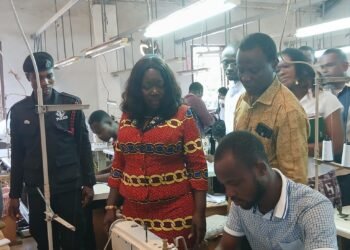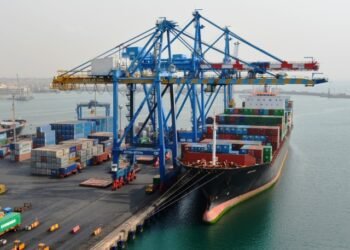Members who partook in the 74th Annual New Year School and Conference, have appealed to the ministry of finance through the Central Bank of Ghana (BoG) to develop a differential interest rate structure for businesses under African Continental and Free Trade Area (AfCFTA).
The Participants in a communique released on the 20th January, 2023, disclosed that the Central Bank Of Ghana should put in its maximum effort to ensure interest rates charged by financial institutions on credit facilities granted to businesses in the agricultural sectors are reduced in order to meet the demands of emerging markets.
The event was held on the theme: “Positioning the African Market for Sustainable Economic Development through AFCFTA.”
According to them, AfCFTA member states should accelerate the process of developing regional common currencies which they explained would ensure the smooth facilitation of trade among businesses in member countries.
The group tasked the Ministry of Trade and Industry along side the National AfCFTA Co-ordination office to create business advisory centres at the Metropolitan, Municipal and District Assemblies (MMDAs) to assist Micro, Small and Medium Scale Enterprises (MSMEs) and large businesses to harness the benefits of AfCFTA.
The communique urged the Ministry of Trade and Industry and the national AfCFTA coordination office to urgently implement the communication and advocacy strategy that seeks to promote the activities of AfCFTA, and how individuals and businesses could harness the benefits of AfCFTA.
Calling on the government, the participants beseeched authorities for more support for the private sector and industries through trade financing to enable them export their products. “Government should ensure businesses in the private sector adopt green manufacturing practices,” they added
“The government should prioritize the development of green skills and the promotion of green jobs among professionals and individuals in the private sector.”
Participants Of AfCFTA
They further charged the government of Ghana to provide tax incentives to businesses in the private sector to increase the production and export of made-in- Ghana goods to boost the country’s revenue.
Revise Educational Curriculum
According to them, as part of the 4th industrial revolution, educational institutions should develop their curricula as commodities to harness the opportunities of the open market afforded by AfCFTA.
The AfCFTA, they stressed, should engage with academia and industry leaders to develop apprenticeship and internship programmes for the practical training of tertiary graduates.
Not Limited to that, they also called on AfCFTA to collaborate with educational institutions to promote research on trade in Africa, regional value chains, and market information.
The participants urged for increased collaboration among member states on information dissemination on governance, peace and security which they said must include updates on laws and statutes that inform implementation of Trade within the AfCFTA framework by member states.
They called for broader control harmonization methods among state and relevant national agencies as well as more stakeholder involvement in the training of personnel for the deployment of these measures.
The communique charged member countries to ensure that they safeguard national security and address disputes that may arise “in a swift, decisive and transparent manner”, adding that “rule of law” must be assured as a means of providing transparency and accountability by all African leaders.”
Read Also : Bawumia Says Gov’t Is Empowering Ghanaians to Take Advantage of AfCFTA Opportunities























